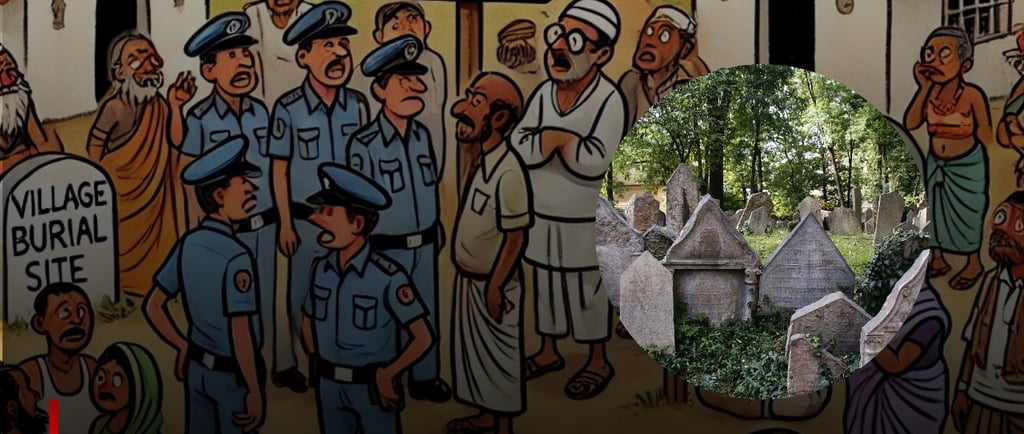Supreme Court of India Resolves Burial Dispute in Chhattisgarh Village
The Supreme Court of India, on January 27, 2025, delivered a significant judgment addressing a sensitive issue involving burial rights and community harmony in the case of Ramesh Baghel vs. State of Chhattisgarh & Others. The case centered around the denial of a burial site for a Christian pastor in his native village of Chhindwada, Chhattisgarh, due to objections from local villagers and a lack of formal demarcation of graveyards for the Christian community. This decision highlights the complexities of balancing individual religious rights, community practices, and public order.
1/29/20252 min read


The controversy began when Ramesh Baghel, the bereaved son of a pastor, faced resistance from his fellow villagers when attempting to bury his late father in the area traditionally used by the Christian Mahra community within the village graveyard. Despite an established informal practice of allowing Christian burials at the site, some villagers, backed by the Gram Panchayat, objected, citing that no formal approval existed for a Christian burial ground in the village. Instead, they suggested using a designated burial site 20-25 kilometers away in Karkapal.
Faced with hostility and a lack of support from local authorities, Baghel approached the High Court of Chhattisgarh seeking protection and permission to carry out the burial in Chhindwada. However, the High Court dismissed his plea, reasoning that the burial should take place in the designated Karkapal site to avoid unrest. This left Baghel with no recourse but to approach the Supreme Court.
The Supreme Court's Observations
The bench, led by Justice Nagarathna, emphasized the fundamental rights guaranteed under Articles 14, 15, 21, and 25 of the Constitution, which protect equality, non-discrimination, dignity in death, and freedom of religion. The Court observed that the objections raised by the villagers and the Panchayat were discriminatory and violated the secular principles enshrined in the Constitution. The judgment underscored the duty of local authorities to ensure the peaceful coexistence of diverse religious practices.
Justice Nagarathna noted that the Gram Panchayat had failed in its responsibility to formally demarcate burial grounds for Christians, despite decades of informal practice. The Court criticized the Panchayat’s inaction and divisive stance, stating that it undermined harmony in the village and amounted to hostile discrimination.
Key Directions from the Judgment
Burial on Private Land: The Court allowed the appellant to bury his father on his private agricultural land in Chhindwada, stressing that this decision should not set a precedent for claiming legal ownership or rights over burial grounds in the future.
Security and Protection: The Court directed the state authorities to provide adequate security to Baghel and his family during the burial, ensuring their safety against threats from villagers.
State Responsibility: The judgment mandated the Chhattisgarh government to demarcate and formally allocate burial grounds for Christian communities across the state within two months, thereby preventing similar disputes in the future.
Upholding Dignity in Death: The Court reaffirmed that every individual, regardless of their religion, is entitled to dignity in death, which includes the right to a respectful burial in accordance with their customs and traditions.
A Dissenting Opinion
Justice Satish Chandra Sharma, while concurring with the need for a dignified burial, dissented from the majority view on permitting burial on private land. He upheld the High Court's order directing burial at the Karkapal site, citing the statutory rules governing designated burial grounds. Justice Sharma emphasized the importance of maintaining public order and the limitations of individual rights when balanced against community practices.
Implications and Reactions
This judgment has far-reaching implications for addressing similar disputes across India, where religious minorities often face challenges in accessing burial or cremation grounds. Legal experts hailed the decision as a milestone in safeguarding the constitutional values of equality and secularism.
Baghel expressed relief at the judgment, stating, "This is not just about my father’s burial but about protecting the dignity and rights of the Christian community in our village."
The state government has assured compliance with the Court’s directives, marking a step towards ensuring inclusivity and harmony in burial practices.
